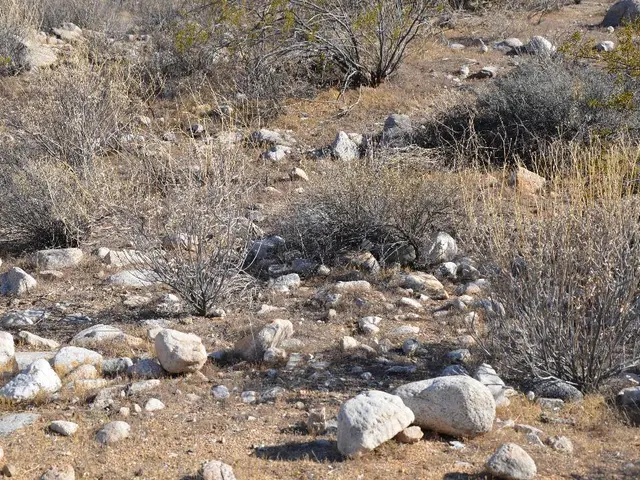Santander Recognizes Six Companies for Innovative Circular Economy Approaches
In a significant step towards promoting innovation in the circular economy, the winners of the Santander X Global Challenge | Circular Economy Revolution were announced at an event held in Barcelona on June 26, 2025. The event, hosted by Norrsken House Barcelona, brought together leading entrepreneurs and sustainable innovation figures.
The winners for the year 2025 hail from Germany, Spain, and the UK. Among the winners are Radical Dot GmbH (Germany), who convert mixed plastic waste into high-quality chemical precursors, reducing dependency on fossil fuels and harmful emissions. PulpaTronics (UK) designs smart, chipless RFID tags made of paper, enabling product tracking without electronic waste. Lain Technologies (Spain) develops electrochemical technologies for the sustainable extraction of metals, reducing the environmental impact of these processes. Metalchemy (UK) produces biodegradable food packaging with green-manufactured colloidal silver, reducing waste and prolonging product shelf life. Catalyxx Procesos Catalíticos (Spain) turns waste into renewable alcohols, offering a sustainable alternative to fossil resources in various industrial sectors.
Maite Cordón, Head of Santander Growth, and Antonio Suárez-Pumariega, Global Head of Digital Business at Santander Universities, were among the attendees. The winners will become members of the Santander X 100 global community and receive a year's membership to Norrsken in Barcelona. They will also receive a total of EUR 120,000 in prize money and access to Fintech Station, an open innovation programme.
The Oxentia Foundation, which supports innovation and global entrepreneurship, addressing global inequalities and contributing to achieving the UN Sustainable Development Goals, collaborated with Santander X in this initiative. Norrsken Barcelona, a non-profit foundation that provides capital, network, and knowledge to entrepreneurs for positive change, managed the event. The Santander X global platform supports companies' growth and transformation through tools and non-financial services.
The winners' innovations reflect a commitment to sustainability and innovation, aligning with global efforts to reduce environmental impact through more efficient and circular economic models. Kelpi (UK), another participant in the challenge, creates recyclable, seaweed-based packaging to replace plastic and contribute to a more sustainable supply chain.
The Santander X Global Challenge | Circular Economy Revolution is part of a broader effort by Santander X, in collaboration with other organizations, to foster sustainable and environmentally friendly practices. This initiative marks a significant step forward in the global movement towards a more circular and environmentally conscious future.
[1] Norrsken Barcelona: https://www.norrsken.org/foundations/norrsken-barcelona/ [3] Oxentia Foundation: https://www.oxentia.org/
- The winners of the Santander X Global Challenge | Circular Economy Revolution, such as Radical Dot GmbH, PulpaTronics, Lain Technologies, Metalchemy, and Catalyxx Procesos Catalíticos, are entrepreneurial ventures that focus on finance, technology, and sustainable living, specifically home-and-garden, business, and lifestyle sectors, by offering innovative solutions to reduce waste, lower emissions, and promote circular economy principles.
- As part of their efforts to promote sustainable practices, the winners of the Santander X Global Challenge receive a year's membership to Norrsken in Barcelona, access to the Fintech Station open innovation program, and prize money, which aids in funding their business growth, furthering their impact on the finance, technology, and lifestyle industries toward a more sustainable future.
- By supporting innovative startups like the winners of the Santander X Global Challenge and encouraging sustainable entrepreneurship, organizations such as the Oxentia Foundation and Norrsken Barcelona contribute to achieving the UN Sustainable Development Goals and address global inequalities, ultimately contributing to a more environmentally-friendly and circular economy worldwide.




